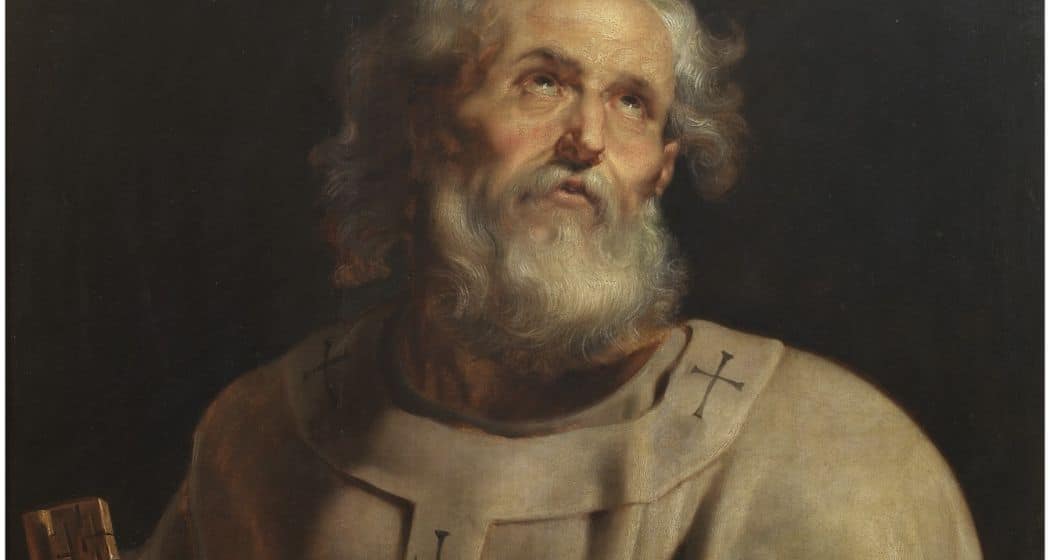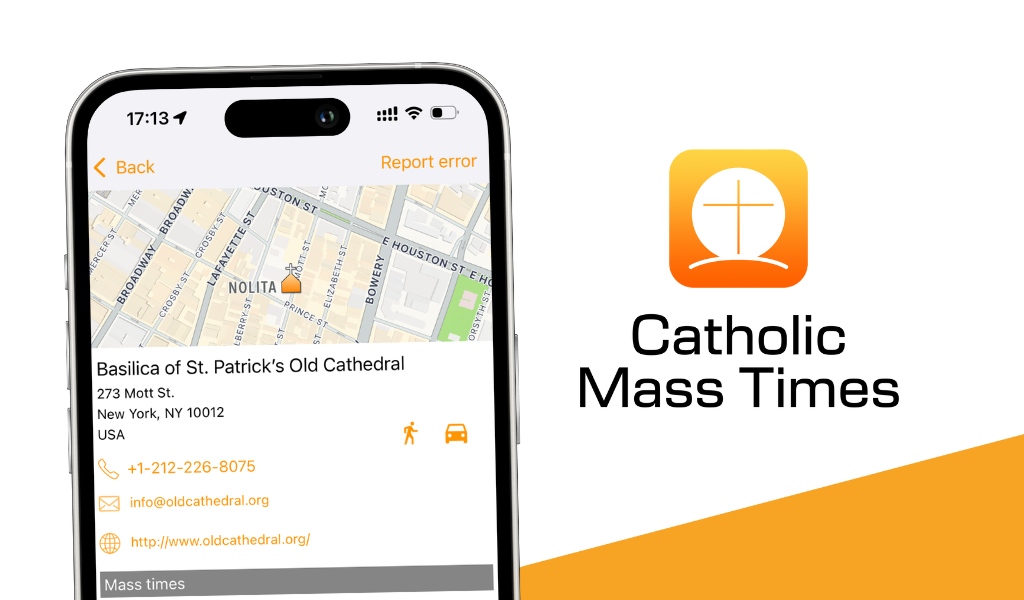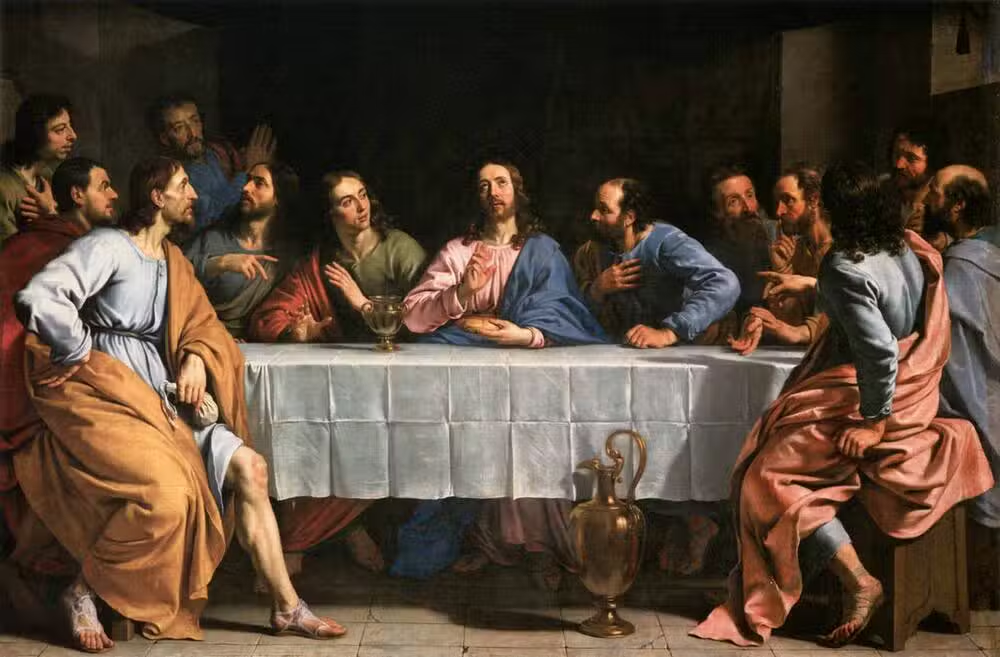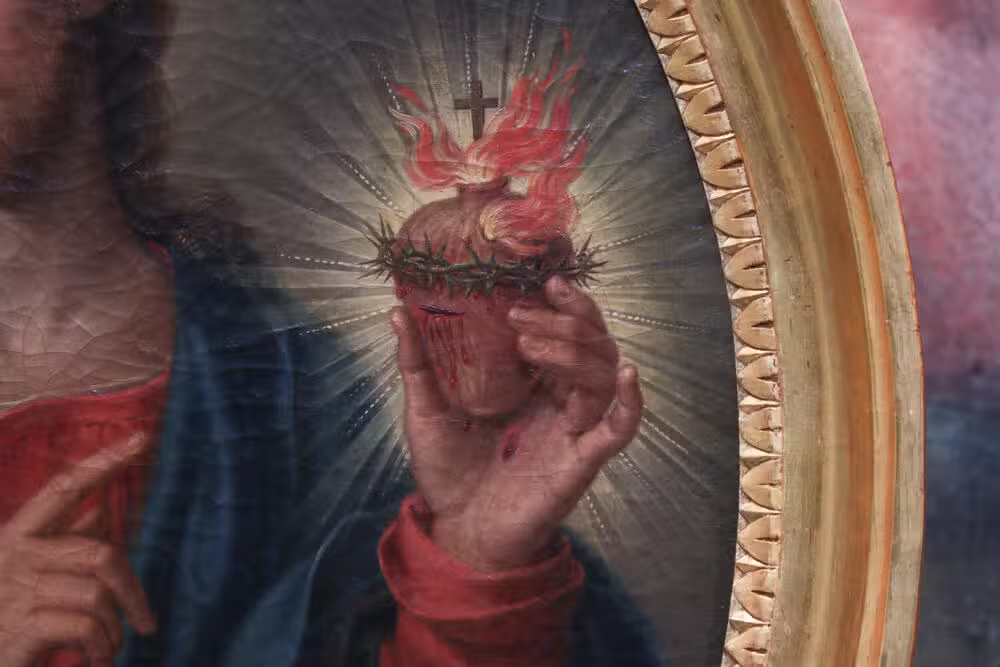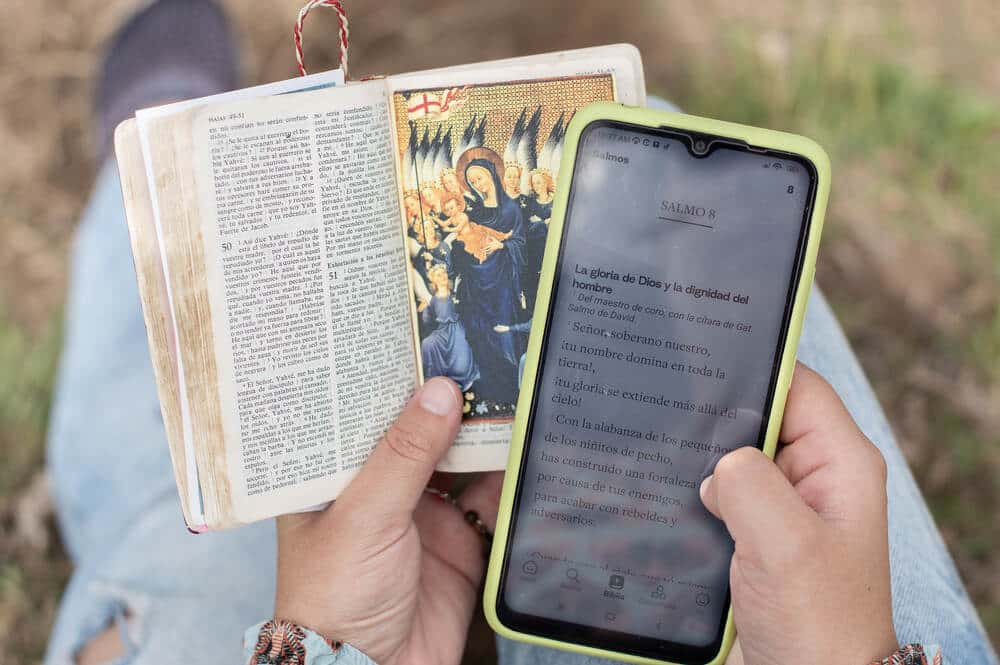The Sacrament of Confession, or reconciliation, is one of the fundamental pillars of the Catholic faith, instituted by Christ Himself as a means to heal our relationship with Him and with the Church. Through this sacrament, the faithful obtain God’s forgiveness for sins committed after baptism, an act of great mercy that restores inner peace and communion with the Church.
In confession, we approach God with a repentant heart, seeking His forgiveness and experiencing His unconditional love. We not only reconcile with Him but also with the community of the Church, to which we belong as members of the Body of Christ. For confession to be true and fruitful, it is crucial to conduct an honest and deep examination of conscience, allowing us to see our faults and repent genuinely.
You can use the Catholic Mass Times app to find the nearest Catholic church with Mass, Confession, and Adoration schedules. It will surely help you! Download it now.
Explanation of the Sacrament of Confession
Confession is a sacrament of spiritual healing, a means of grace that allows us to reconcile with God and His Church. As the Catechism of the Catholic Church teaches, “Those who approach the sacrament of Penance obtain pardon from God’s mercy for the offense committed against him, and are, at the same time reconciled with the Church which they have wounded by their sins and which by charity, by example, and by prayer labors for their conversion” (CCC 1422). This act has its origin in the mission given by Christ to His apostles: “Receive the Holy Spirit. If you forgive the sins of any, they are forgiven them; if you retain the sins of any, they are retained” (John 20:22-23).
Pope Francis, in his exhortation Evangelii Gaudium, emphasizes the importance of this sacrament by saying, “Mercy is the heart of the Gospel, and confession is the sacrament that helps us live out that mercy. In confession, God’s forgiveness is not just an absolution of sins, but an opportunity to start anew, renewed in His love” (Evangelii Gaudium, 37). Confession, therefore, not only frees us from sin but also invites us to a profound transformation and renewal in our relationship with God and the Church.
The practice of confession has its roots in biblical teachings. In the Gospel according to St. John (20:22-23), Jesus says to His apostles: “Receive the Holy Spirit. If you forgive anyone’s sins, their sins are forgiven; if you do not forgive them, they are not forgiven.” This authority given to the apostles has been transmitted through the centuries to the priests of the Catholic Church. Confession is, therefore, a continuation of Christ’s redemptive mission, administered through His ordained ministers.
St. John Paul II also emphasizes the biblical importance of the sacrament in his apostolic letter Misericordia Dei: “Individual and integral confession and absolution remain the only ordinary way for the faithful to reconcile themselves with God and the Church, unless physical or moral impossibility excuses from this kind of confession” (Misericordia Dei, 3).
How can I Make a Good Confession?
For a good confession, it is recommended to follow the 4 “C’s”. The confession should be:
- Clear: Express your sins in an understandable way, without beating around the bush or causing confusion. Avoid ambiguous words or unnecessary explanations. Be sincere and direct.
- Concrete: Say exactly what you did, without generalizing. Instead of saying “I haven’t been a good Christian,” mention the sin precisely, for example: “I missed Mass without a serious reason” or “I lied to make myself look good.”
- Concise: It’s not necessary to go into every detail or give long explanations. The priest doesn’t need the whole story, just the main facts to be able to advise and absolve you.
- Complete: Don’t hide any serious sin out of shame or fear. The confession must include all mortal sins you remember since your last valid confession for it to be valid and fruitful.
The 5 Steps for a Good Confession
To receive the sacrament of confession properly, several essential steps are required:
- Step #1: The examination of conscience. This step involves a deep and honest reflection on our actions, thoughts and omissions in order to identify the sins committed. The examination of conscience should be thorough and sincere, helping the penitent to recognize areas of their life that need amendment.
-
- You may be interested in:
- Steps #2 and #3: Express true repentance and express a resolution to amend. This repentance is not only a feeling of sadness for having sinned, but a firm resolution to change the behaviors that led to sin and to avoid sin in the future. Repentance must be genuine, with a sincere desire for reconciliation with God and personal transformation.
- Step #4: Confess the sins to the priest. During confession, the penitent must express all his mortal sins clearly and completely, without omitting anything out of shame or fear. Venial sins may also be confessed to receive additional grace, although they are not obligatory for the validity of the sacrament.
- Step #5: Perform the penance. During confession, the priest imposes a penance and grants sacramental absolution. Penance is an action that the penitent must perform as a sign of his desire for reparation and his commitment to a new life. Absolution, granted by the priest in the name of Christ, removes the confessed sins and restores Divine Grace in the penitent’s soul.
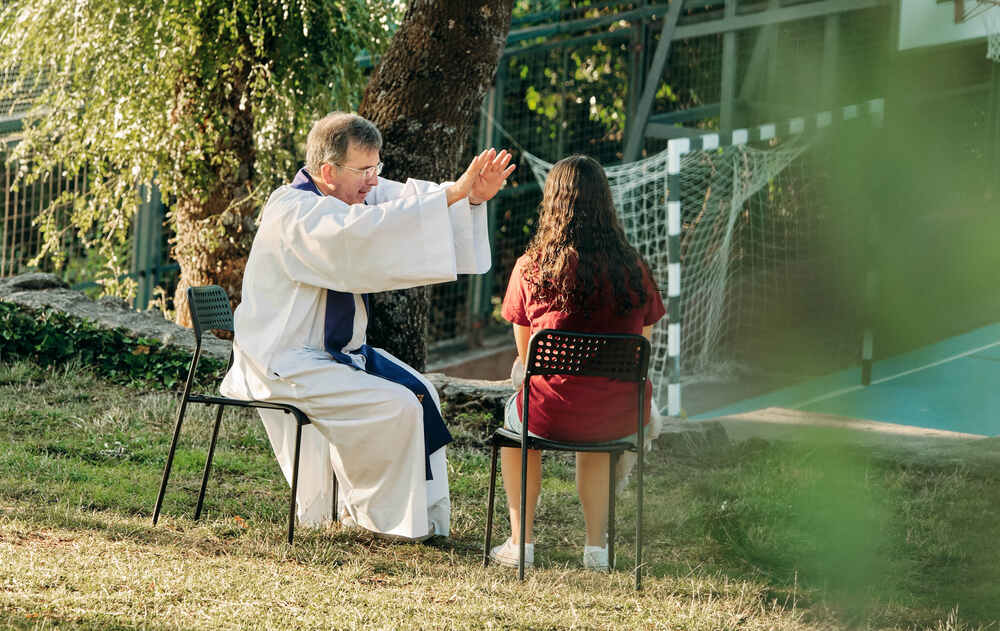
What’s keeping you from going to Confession?
As a FOCUS article says, some wounds could prevent us from going to confession, and it is worth pondering!
1. Rationalization: “I Don’t Need to Repent”: It’s easy to look at our own lives and think: “I’m a good person. I haven’t committed any horrible crimes. Everyone else does this. I know other people who are much worse than me”. True disciples of Jesus don’t try to rationalize their sins. When a part of us feels that we have done something wrong or are doing something that goes against what Jesus and His Church teach, the next step is to repent: admit our guilt, trust in God’s mercy, and try to change our behavior instead of trying to justify our sins, convincing ourselves that what we are doing is right.
2. Fear of Repentance: “I Don’t Want to Change!”: We might be afraid of giving up specific sins. Augustine knew his actions were wrong, but he didn’t want to abandon his bad habits. Before his conversion, he even prayed: “Lord, give me chastity… but not yet!” We too need to see what Augustine came to understand: God’s plan is for our happiness, and when we follow God’s plan, we always find greater joy than we would otherwise, no matter the cost. The joy of the Gospel is much better than our sins.
3. Despair: “I Cannot Be Forgiven”: We might doubt that we can be forgiven. Like Augustine, we might believe that we are so enslaved to sin that turning our lives around is impossible. We might delay and convince ourselves that, perhaps later, when we have our lives in order, we will be able to repent and believe in God. However, Jesus does not work this way. We don’t need to “put our lives in order” to begin living in friendship with Jesus; we need to entrust our lives to Jesus so that He can put them in order! We cannot do it by ourselves. But with His help, we can be forgiven, changed, and renewed.
Sometimes, our shame for various sins, whether related to sexuality, addictions, unhealthy habits, or more serious transgressions, might lead us to believe that God’s forgiveness is unattainable. However, in reality, our sins, no matter how serious, are like a drop of water in the vast ocean of God’s mercy. His mercy completely encompasses our faults.
I encourage you to search for confession schedules near you and make a good confession, whether you last went a week ago, a month ago, or perhaps years ago. Jesus will always receive you with open arms! The Mass Times app will always be ready to help you find mass, confession, and adoration schedules wherever you are.
If something is preventing you from approaching the Lord in the Eucharist with joy and confidence, remember that there’s no sin so great that God won’t forgive if you go to confession with an open heart. You’ll feel so relieved after confessing and receiving the Eucharist!
You can use the Catholic Mass Times app to find Confession schedules at nearby churches and go today! It will surely help you! Download it now.
How to ensure that a confession is valid?
For a confession to be valid, it is essential to confess all sins sincerely and completely. Additionally, the penitent must be in a state of genuine repentance and have a purpose of amendment, that is, a real desire to change and avoid sin in the future. This inner and outer disposition ensures that the sacrament is truly effective.
Why do we say that confession is a paschal sacrament?
Confession is a paschal sacrament because, through it, the believer participates in the death and resurrection of Christ. In each confession, the penitent experiences a death to sin and a resurrection to a renewed life in grace. This process reflects the mystery of Easter, where salvation and redemption are offered through forgiveness and spiritual restoration.
Why must confession be made with a priest and not directly with God?
Confession is made with a priest because he acts as an intermediary authorized by Christ, who entrusted the apostles with the power to forgive sins. Through the priest, the penitent receives divine forgiveness in a tangible and visible form, which reinforces unity with the Church. This sacramental structure ensures that reconciliation is not only personal but also communal, as we are reconciling with the entire Church.
How to make a good confession if I haven't received the sacrament for a long time?
Making a good confession after a long time without receiving the sacrament requires humility and sincerity. It is essential to perform a deep examination of conscience, reflecting on the sins committed, seeking to sincerely repent. Trust in God’s mercy and the purpose of amendment are fundamental for the confession to be effective. Also, having patience and confidence in divine forgiveness is key in this process.





